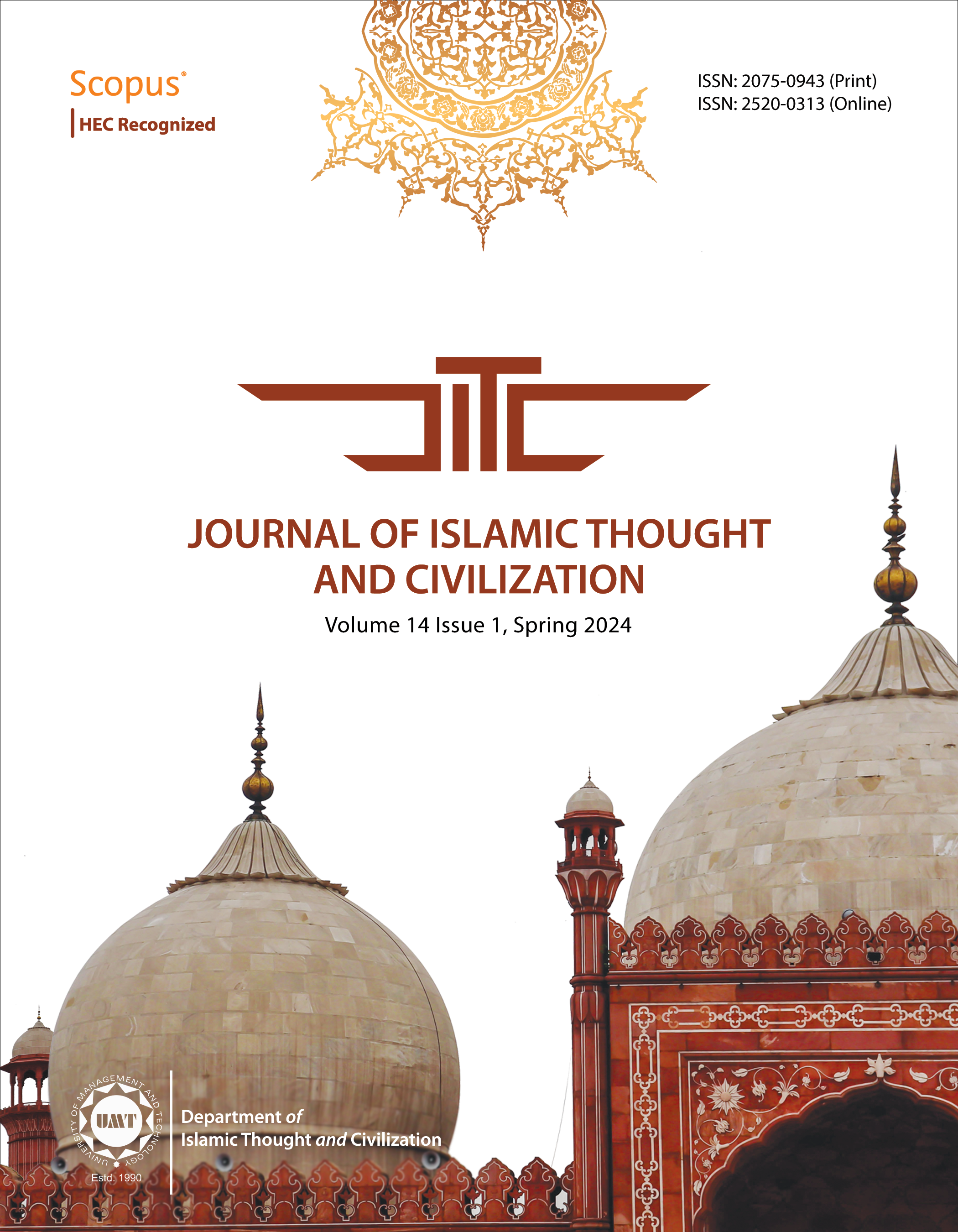Iqbal's Spiritual Democracy and Habermas's Deliberative Democracy: A Comparative Study
Abstract
 Abstract Views: 0
Abstract Views: 0
The current study is written in the context of the civilizational dialogue between the West and the Muslim world with reference to Jürgen Habermas and Muhammad Iqbal's political views. It explores the congruence and contrasts between Habermas's discourse theory of democracy or deliberative democracy and Iqbal's theory of spiritual democracy. This research strives to find out the extent to which the core values of Habermas's theory and that of Iqbal’s are compatible. For Habermas, the core values of social order are liberty and equality, whereas Iqbal upholds liberty, equality, and solidarity. It has been investigated whether they both mean the same phenomena by the same terms or not. For Habermas and Iqbal, democracy is the best form of government but neither one is satisfied with the existing democratic practices. In principle, they accept democracy as the best political system. The research paper also sheds light on the historical and cultural influences that have shaped the political ideologies of both Habermas and Iqbal, considering the impact of Western Enlightenment ideals on Habermas and the role of Islamic jurisprudence and spirituality in shaping Iqbal's democratic theory. Through critical analysis, this study aims to deepen the understanding of complexities inherent in the dialogue between Western and Muslim civilizations and offers insights into potential avenues for collaboration in political theory and practice.
Downloads
References
Begum, Shagufta. “Iqbal’s Concept of Spiritual Democracy.” Al-Hikmat 21 (2001): 21-30.
Collinson, Diané. Fifty Eastern Thinkers. New York: Routledge, 2000.
Fakhry, Majid. A History of Islamic Philosophy: Third Edition. New York: Columbia University Press, 2004.
Greiff, Pablo De., and Ciaran Cronin, eds. Global Justice and Transnational Politics: Essays on the Moral and Political Challenges of Globalization. Cambridge: MIT Press, 2002.
Habermas, Jürgen., and Joseph Ratzinger. Dialectics of Secularization: On Reason and Religion. San Francisco: Ignatius Press, 2006.
Habermas, Jürgen. Between Facts and Norms: Contributions to a Discourse Theory of Law and Democracy. Cambridge: The MIT Press, 1996.
Habermas, Jürgen. The Divided West. Cambridge: Polity Press, 2008.
Habermas, Jürgen. The Inclusion of the Other: Studies in Political Theory. Edited by Ciaran P. Cronin and Pablo De Greiff. Cambridge: The MIT Press, 2000.
Iqbal, Javid. Islam and Pakistan's Identity. 1st ed. Lahore: Iqbal Academy: Vanguard Books, 2003.
Iqbal, Mohammad. Muslim Political Thought: A Reconstruction. Edited by Fateh Mohammad Malik. Islamabad: Alhamra Printing, 2002.
Iqbal, Muhammad. Discourses of Iqbal. Edited by Shahid Hussain Razzaqi. Lahore: Iqbal Academy Pakistan, 2003.
Iqbal, Muhammad. Speeches and Statements of Iqbal. 1st ed. Lahore: Sh. Ghulam Ali, 1973.
Iqbal, Muhammad. The Secrets of the Self (Asrár-i Khudí) a Philosophical Poem. Translated by Reynold Alleyne Nicholson. London: Macmillan, 1920.
Iqbal, Muhammad. Thoughts and Reflections of Iqbal. Edited by Syed Abdul Vahid. Lahore: Sh. Muhammad Ashraf, 1964.
Malik, G. R. The Western Horizon: A Study of Iqbal's Response to the West. Lahore: Iqbal Academy Pakistan, 2009.
Schaefer, Michael., Hans-Jochen Heinze, Michael Rotte, and Claudia Denke. “Communicative versus Strategic Rationality: Habermas Theory of Communicative Action and the Social Brain.” Edited by Ben J. Harrison. PLoS ONE 8, no. 5 (May 29, 2013). https://doi.org/10.1371/journal.pone.0065111.
Mir, Mustansir. Iqbal. Lahore: Iqbal Academy Pakistan, 2006.
Rummens, Stefan. "Debate: The Co-Originality of Private and Public Autonomy in Deliberative Democracy." Journal of Political Philosophy 14, no. 4 (2006): 469-81. https://doi.org/10.1111/j.1467-9760.2006.00255.x.
Sabir, Ayyub, and Mohammad Sohail Umar. Iqbal's Concept of Ijtihād. Lahore: Iqbal Academy Pakistan, 2011.
Sharif, Mian Mohammad. A History of Muslim Philosophy. Germany: Allgaur Heimatverlag, 1996.
Tariq, Fatima. “FOUR SCHOOLS OF SUNNI LAW.” Accessed February 5, 2024. https://www.academia.edu/39727001/FOUR_SCHOOLS_OF_SUNNI_LAW.
Taylor, Charles. Preface to Islam and Open Society Fidelity and Movement in the Philosophy of Muhammad Iqbal by Souleymane Bachir Diagne, xi-xii. Senegal: Codesria, 2010.
Copyright (c) 2024 Asad Shahzad, Irfan Muhammad

This work is licensed under a Creative Commons Attribution 4.0 International License.

This work is licensed under a Creative Commons Attribution 4.0 International License. Authors retain copyright and grant the journal right of first publication with the work simultaneously licensed under a Creative Commons Attribution (CC-BY) 4.0 License that allows others to share the work with an acknowledgement of the work’s authorship and initial publication in this journal.








